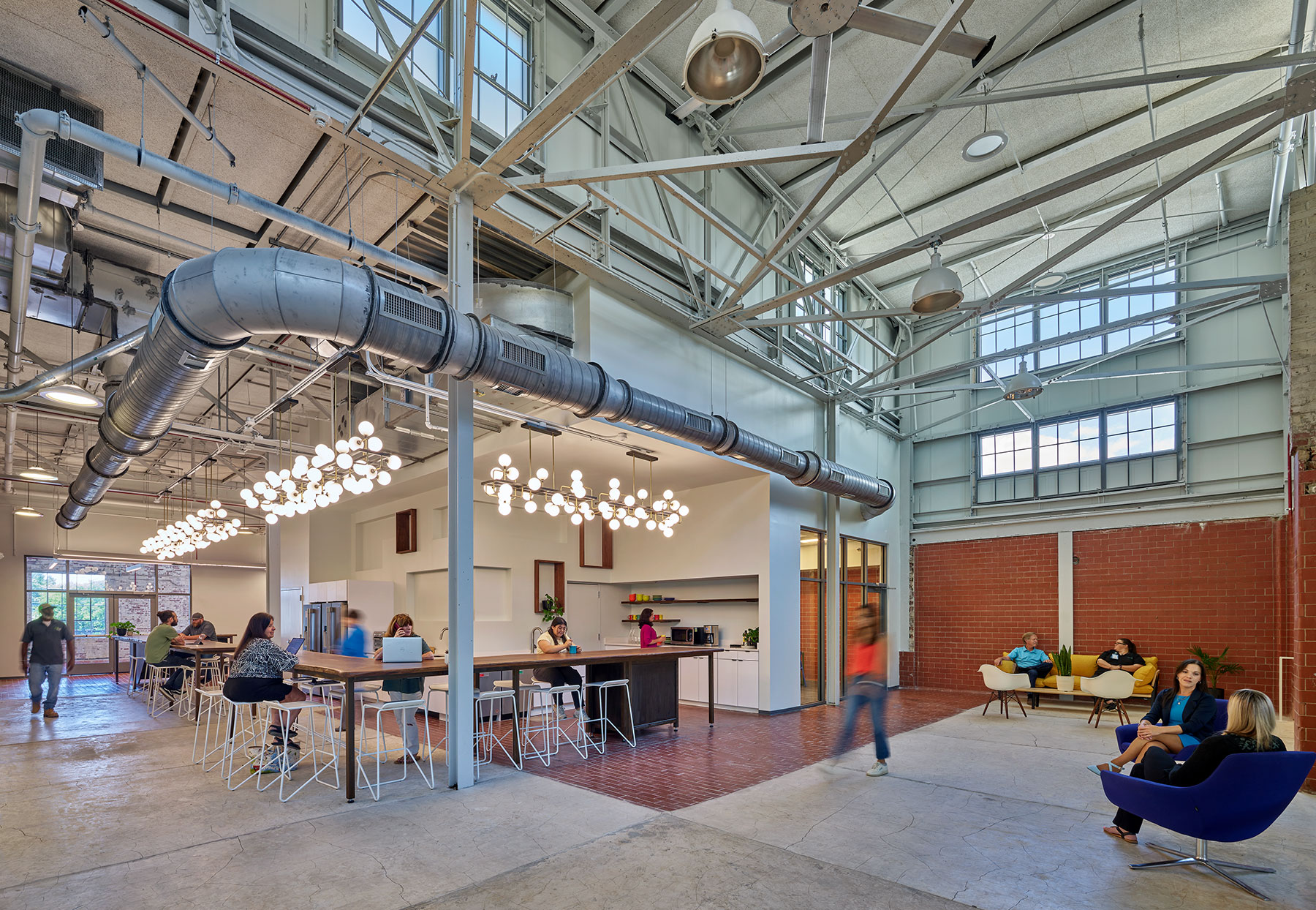New Markets Tax Credits
$5 Million

Total Project Cost
$10 Million
Project Partner
Cross Street Partners

Impact
Workforce Development, Sustainability
History
A Global Canning Industry is Formed
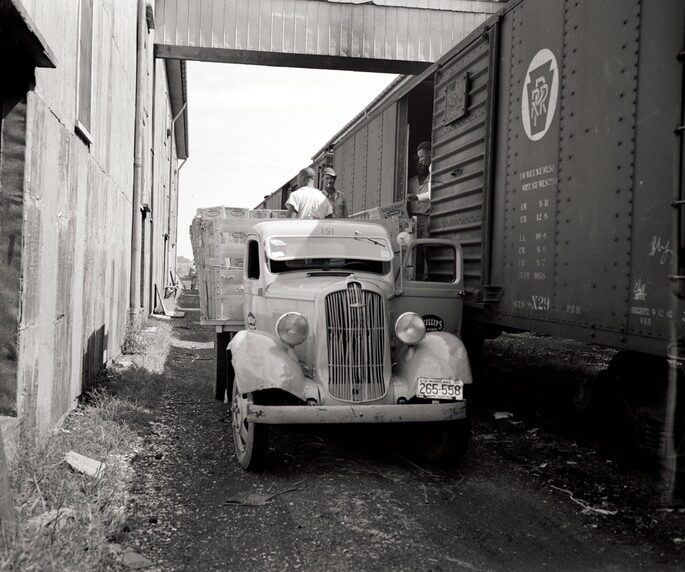
Nestled between the waters of Chesapeake Bay and the farmland of the Eastern Shore, The Phillips Packing Company utilized these nearby resources to become a leading cannery in the United States. As the company grew, it acquired its final building in 1930, one of the largest factories in Cambridge, Maryland. “Factory F,” as it was known, became the headquarters for the company’s successful tomato operation, where they soon became a global name as the largest producer of canned tomatoes in the world.
The company also extended its goods to the war effort, becoming the main supplier of individual canned and pre-cooked meals (known as C-rations) to soldiers during World Wars I and II. In the 1930s, it also supplied food and provisions to Antarctic explorers. These successes put Cambridge on the map, and the community reaped the benefits.
At one point, the Phillips Packing Company employed about a quarter of the population of Cambridge. It was also one of the few desegregated employers; anyone and everyone was welcome to work in the hustle of the factories.
The Phillips Packing Company continued to be an economic staple, eventually expanding into trucking and oil before it was finally sold to Consolidated Foods (now a Sara Lee Corporation) in the 1960s. Factory F was the only remaining production building from the Phillips Packing Company empire.
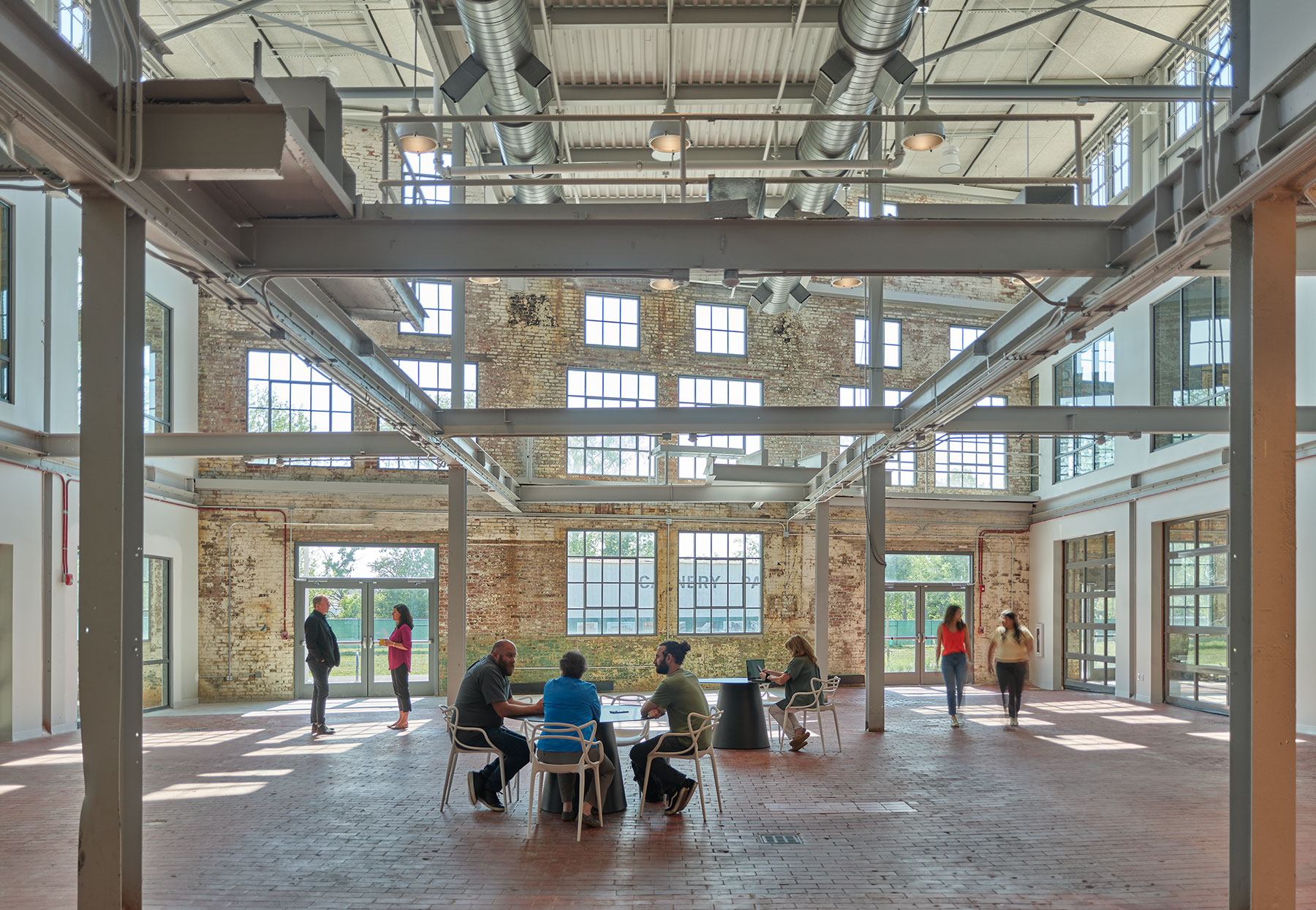
Revitalization Efforts
A New Generation
The historic warehouse has become the Packing House and will continue its legacy of the Chesapeake by creating an environmentally sustainable space for emerging entrepreneurs, workforce development, and aquaculture.
The Packing House provides space for local businesses supporting Chesapeake Bay revitalization efforts, commercial kitchen opportunities for food business startups, and workforce development training opportunities for individuals seeking new employment.
Community Impact
A Thriving Community Asset
The Cambridge community is once again benefiting from jobs created from within The Packing House. The extensive construction and preservation efforts generated 110 construction jobs, and as the tenant businesses grow in their new spaces, they’ll create and retain a projected 161 permanent jobs. 100% of the construction and permanent positions will be quality, well-paying jobs targeting and supporting the community.
The tenants of the building are dedicated to giving back to the community through various programming and support. The Maryland DHCD operates a Community Engagement Center within the Packing House to host training and certification programs for residents, including holistic health, continuing education in the medical field, farming certifications, and landscaping certifications.
MERGE is focusing on career growth support by operating one of Cambridge, Maryland’s few incubation hubs and shared office space, with a focus on education.
The new collaborative space will support an estimated 50 entrepreneurs each year. Several active MERGE members, such as the Dorchester Foundation, are community-oriented and operate youth employment programs targeting low-income families.
Food entrepreneurs will also benefit from the new space, with Four Eleven Kitchen offering classes, support, and training in its food concept spaces. Four times a year, it will offer six—to eight-week programs for six young chefs (24 annually). The Four Eleven Kitchen will also offer an additional 10–20 food concept production platforms for others looking to try their hand in the kitchen.
All of this and more will take place in the newly renovated Packing House. This historic, 60,000-square-foot industrial warehouse has been awarded LEED Gold certification for meeting high standards in energy efficiency, water conservation, and material reuse. It is projected that the restored Packing House will conserve 148.9 MWh of electricity each year, equivalent to the amount of energy used when burning 120,000 lbs. of coal.

Chesapeak Bay Restoration
Blue Oyster Environmental donates processed oyster shells to support spawning and environmental remediation

Food Startups
24 young chefs supported annually at Four Eleven Kitchen
10-20 food concept production platforms supporting new food training

Entrepreneurial Support
50 entrepreneurs supported annually at MERGE offices

Job Creation
110 construction jobs created
161 permanent jobs created/retained

Environmental Impact
LEED Gold certified construction
Conserving 150 MWh of Electricity Annually
NTCIC & Progress
Financing the Project
The $10 million phase II of the historic restoration of the Packing House was made possible through public and private financing, including a $5 million New Markets Tax Credit allocation from NTCIC. This critical funding will ensure the tenants’ spaces are activated so they can grow and support more members of the surrounding community.
Additional Phase II funding sources included Historic Tax Credit equity and $2.5 million in additional NMTC allocation from U.S. Bancorp Community Development Corporation. Phase I of the Packing House development, totaling $26 million in development costs, began in 2021 and was completed in 2023.
Check Out Similar Projects Here
Browse all projects
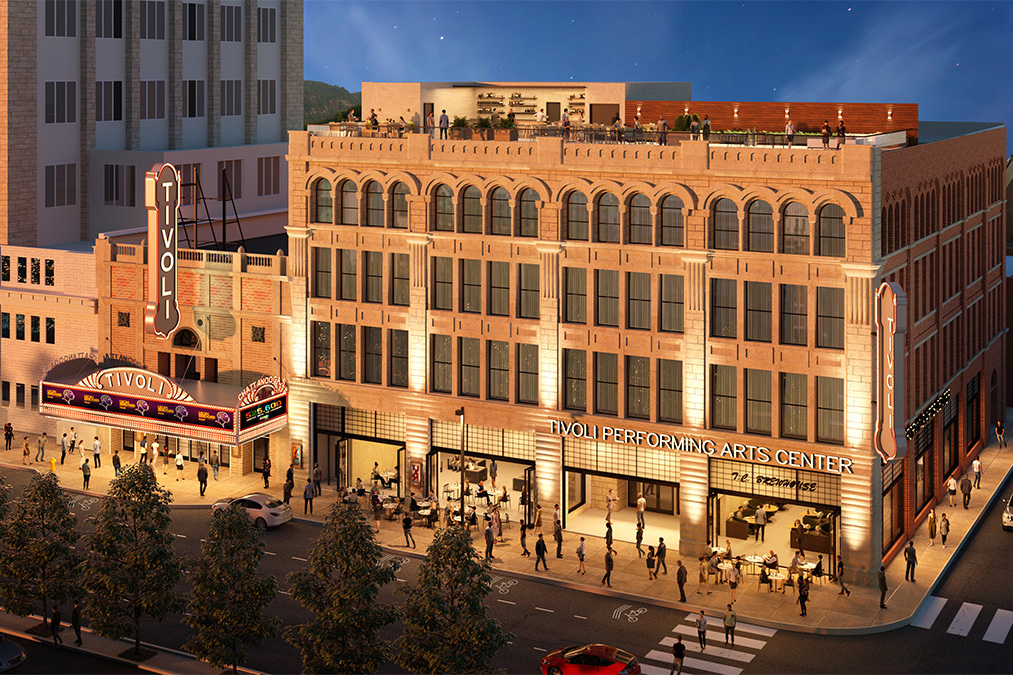
Tivoli Theatre
Community Takes Center Stage at Historic Chattanooga Theatre
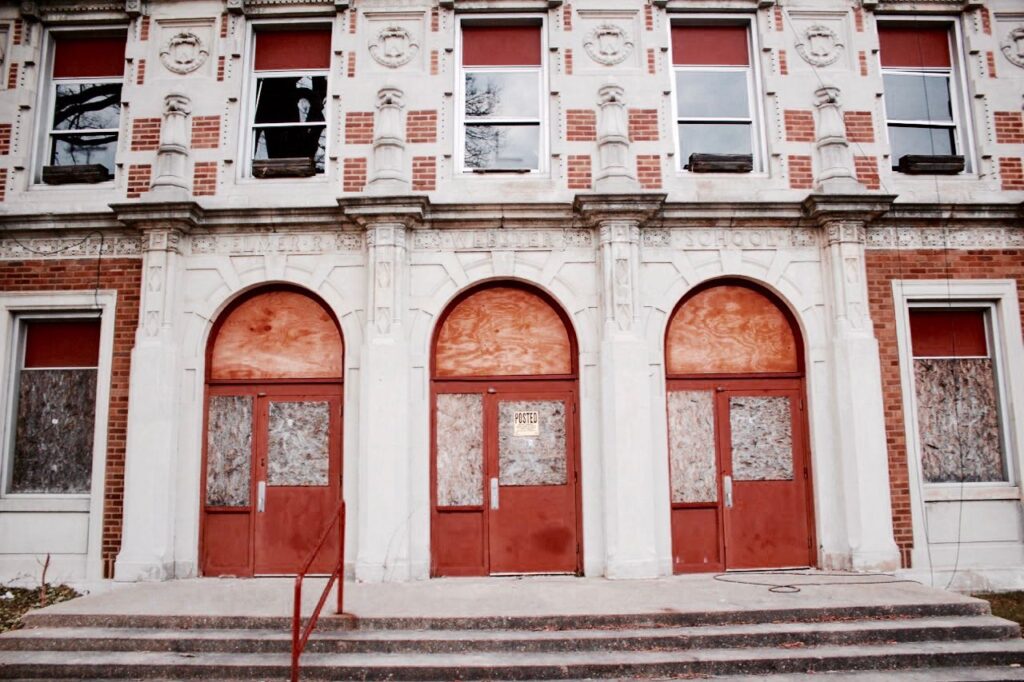
Webster Community Center
From Abandoned School to Community Hub
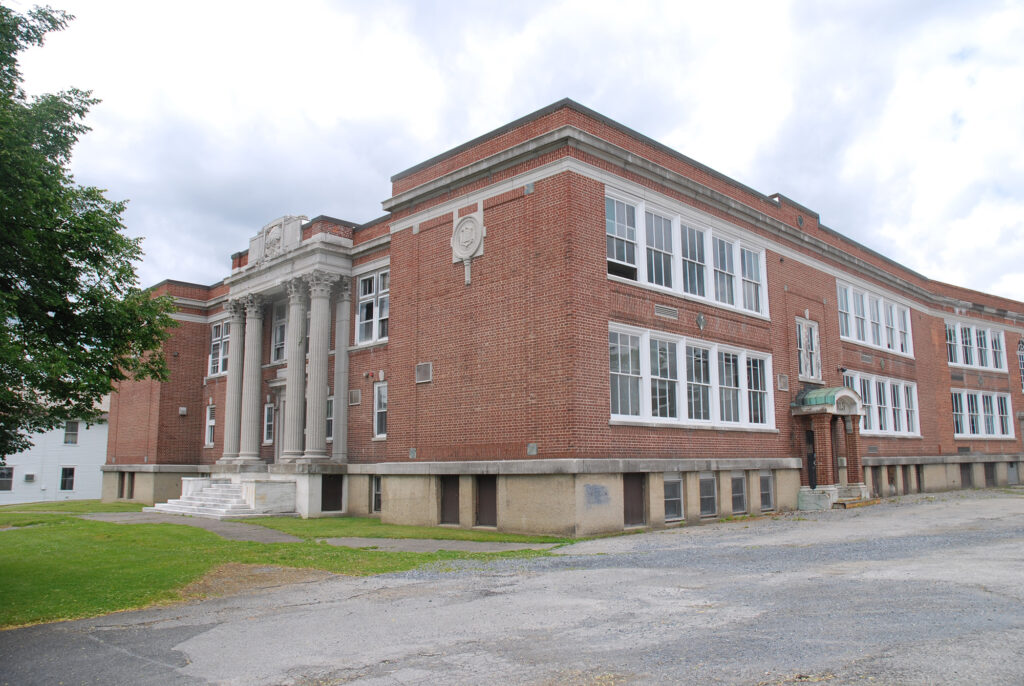
Benn High
Vacant School Building Becomes Community Hub
Want to Discuss Your Next Project? Talk With Our Team Today.
We bring clear insight, deep experience, and strategic focus to every project, whether you're structuring complex capital or shaping long-term, legacy-driven development.
